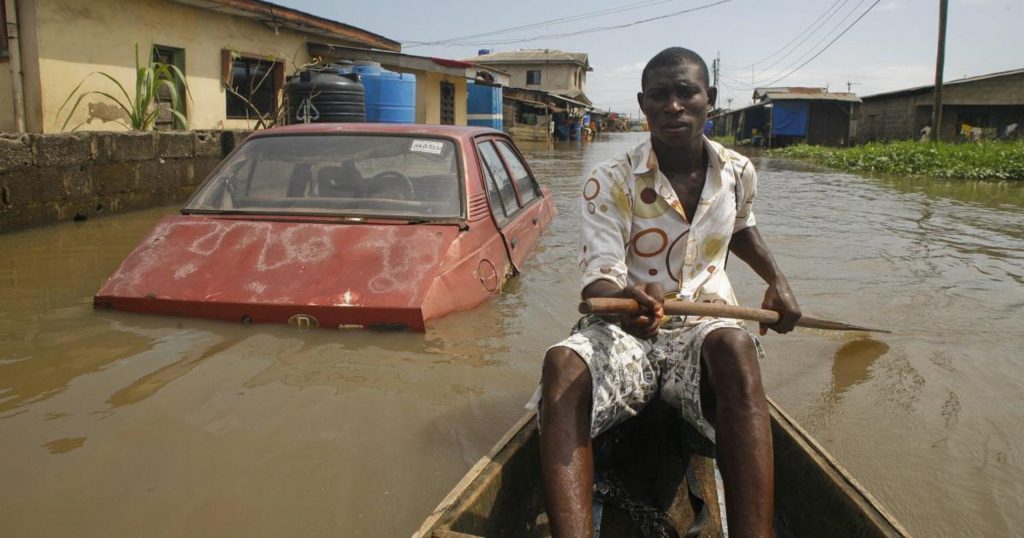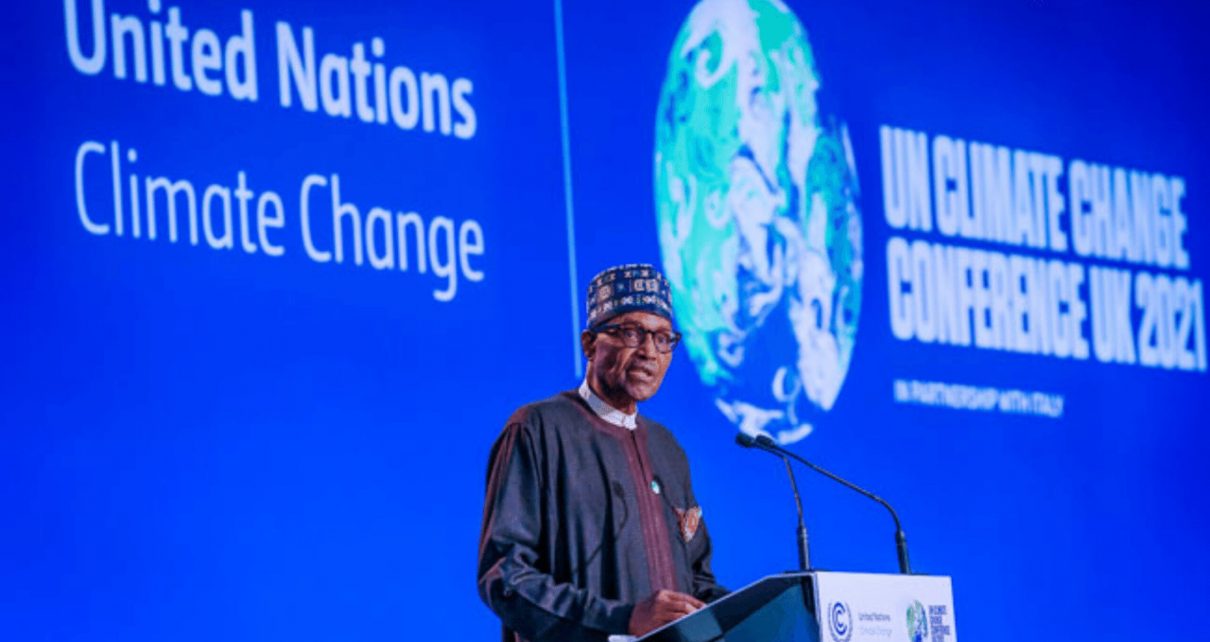The final agreement from the COP26 which just ended in Glasgow, Scotland, offers little promise for Nigeria and its fellow developing nations.
Even then the two-week conference in Scotland delivered a major win in resolving the rules around carbon markets, just as it did little to assuage vulnerable countries’ concerns about long-promised climate financing from rich nations.
Two aspects of the speech by President Muhammadu Buhari at the recently concluded COP26 global summit could have received some attention.
The first is Nigeria’s pledge to attain net zero greenhouse gas emissions by 2060; while the other aspect is a plea for financing of its transition fuels like gas.
“I am requesting for financing of projects using transition fuels, such as gas,” the president said. “Nigeria can continue to use gas until 2040 without diverting from the goals of the Paris Agreement. The country has huge reserves of the fuel, about the ninth largest in the world that remain largely untapped.”

But it has been reported that many funding institutions are being forced to reduce their funding for oil and gas businesses because of the large carbon footprint of such projects. These companies have already started to reduce their investments in oil and gas as part of their net zero carbon targets.
At the end of the global summit, adaptation funding commitments could not be nailed down.
The developed nations, whose historical emissions are largely responsible for warming the planet, argued that developing countries must finance their efforts both to transition away from fossil fuels and to adapt to increasingly severe climate impacts.
As a result, the COP26 summit ended without guarantees on the $100 billion per year climate funding earlier pledged by developed countries.
Nonetheless, a U.N. committee will report next year on progress towards delivering the $100 billion per year in promised climate funding, after rich nations failed to deliver on a 2020 deadline for the funds.
Climate finance will then be discussed again 2024 and 2026.
The COP26 agreement deal also offered no funding promises to vulnerable nations for climate-linked losses and damages, a promise made in the original pact called the U.N. Framework Convention on Climate Change in 1992.
Instead, developed nations resisted acknowledging financial liability for their years of greenhouse gas emissions that drove climate change on which they rode to economic prosperity.
Nigeria had earlier signed on to a methane gas reduction pact.
As the global summit wound own, there was last-minute drama as India, backed by China and other coal-dependent developing nations, rejected a clause calling for the “phase out” of coal-fired power. After a huddle between the envoys from China, India, the United States and European Union, the clause was hurriedly amended to ask countries to “phase down” their coal use.
The single-word change was met with dismay by both rich countries in Europe and small island nations along with others still developing.
“We believe we have been side-lined in a non-transparent and non-inclusive process,” Mexico’s envoy Camila Isabel Zepeda Lizama said. “We all have remaining concerns but were told we could not reopen the text … while others can still ask to water down their promises.”
But Mexico and others said they would let the revised agreement stand.
“The approved texts are a compromise,” said U.N. Secretary-General Antonio Guterres. “They reflect the interests, the conditions, the contradictions and the state of political will in the world today.”
Nigeria has significant oil and gas reserves.
But over the years, it is expected to see a significant divestment of legacy oil and gas assets by energy companies who are pledging net-zero goals.
This is already having an adverse impact on Nigeria, which still depends heavily on the oil and gas sector.



